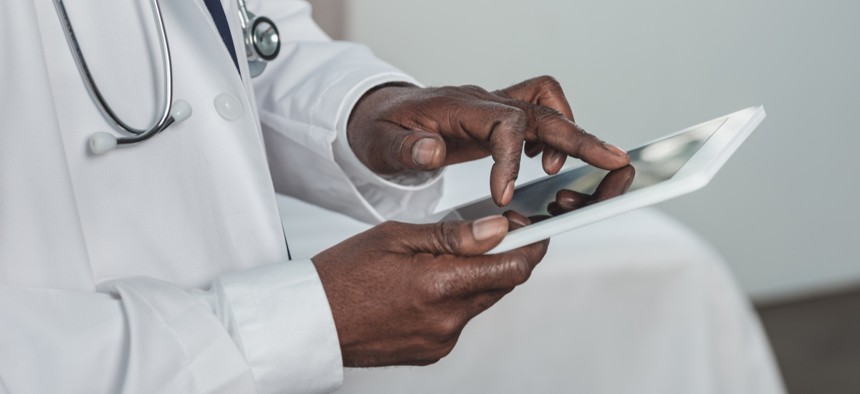Veterans Affairs' Focus on Experience Sees Increase in Veteran Trust

LightField Studios/Shutterstock.com
Trust among veterans has increased 5% in VA health care services since the department began measuring real-time feedback in 2017.
In the thick of the coronavirus pandemic in April, the Veterans Affairs Department measured its highest level of trust among veterans who received VA health care services—reaching 90.1%—since the agency began soliciting real-time feedback in 2017.
The data, unveiled April 30, indicates a 5% increase in veteran trust in VA outpatient services over the last three years and is based on results from more than 4 million surveyed veterans over that time.
“These improvements are a testament to not only VA’s investment in patient experience programs but also the dedication of our employees,” VA Secretary Robert Wilkie said in a statement. “Even during a pandemic, our VA team has continued its steadfast commitment to delivering the highest quality care for our nation’s veterans.”
The survey results on outpatient services come from the agency’s Veterans Signals customer feedback program, part of the VA’s years-long efforts to build trust and improve the experience of veterans.
“We’re very fortunate to have the capability to measure trust, how veterans are feeling about VA, but particularly their health care,” Barbara Morton, deputy chief veterans experience officer, told Nextgov in a podcast that will air next month.
The Veterans Signals program runs on Medallia’s customer relations management and survey software. Through the program, VA surveys veterans about specific medical interactions they’ve had, such as procedures or pharmacy visits. In each survey, veterans are asked to respond to Likert-scale questions and given the opportunity to describe their experience in their own words.
The survey results are then run through text analytics and artificial intelligence software to “make sense of that information,” according to Zac Trojak, co-founder of Medallia’s public sector practice.
“What we do through the Veterans Signals program is shine a light on opportunities, problem areas, pain points or areas for innovation for VA,” Trojak told Nextgov. He added that the software reviews unstructured data coming to VA from survey responses and social media, and is sophisticated enough to flag feedback that might suggest a veteran be at risk of committing self-harm.
With its massive nationwide footprint of health care facilities and veteran population to care for, VA has been in the thick of the government’s response to COVID-19. While the disease spread has challenged VA’s front-line professionals, the agency significantly ramped up its telehealth, telemedicine and virtual engagement.
Lee Becker, former chief of staff for VA’s Veterans Experience Office and now a solutions principal for Medallia’s public sector business, said VA appears to be “doubling down” on the importance of the veteran experience during COVID-19. Early on, Medallia tweaked its algorithms to notice coronavirus-related issues, and Becker said the pandemic is creating a “new normal” of telehealth, telemedicine and virtual capabilities required to properly serve their veteran population.
“VA has made deliberate approach to focus on customer experience signals. Signals that give them intelligence on how to truly address issues and proactively get ahead of issues in the future,” Becker said. “It’s a clear, fundamental shift in approach in how to run a healthcare system or federal agency.”
NEXT STORY: Quick Hits






